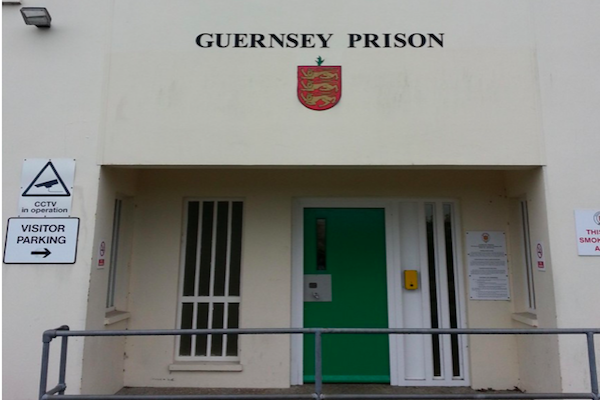

Guernsey’s rate of imprisonment is “extraordinarily high” and is not being addressed by the Home Affairs Committee, according to an independent review.
The issue was raised by Home Affairs staff and service heads in the governance review released this week that widely criticised the committee.
Express revealed last week that Jersey is drawing up legislation that would allow Guernsey and Jersey to share prisoners - mainly to help ease populations at both Les Nicolles and La Moye prisons at times of high occupancy and to help cope with the rising prison population.
"The committee is to be commended for commissioning a Justice Review, although it has done so too late in the life of the committee for it to be able to act on any recommendations," said Dr Catherine Staite, the report's author. "The efficient and effective functioning of the criminal justice system is a key strategic responsibility of the Committee and it should have been the focus of their attention much earlier in this term because of the current extraordinarily high levels and costs of imprisonment in Guernsey."

Express reported last week that plans were being drawn up for the island to share prisoners with Jersey when the need arises.
The number of prisoners, per 100k of population, was 170 [in 2017], compared with 128 in Jersey and 139 in the UK. In Europe, only Hungary had a higher figure for the same year, at 173.
"Of course, direct comparisons with other jurisdictions do not tell the whole story, but they do raise some key questions, for the committee to pursue, about demand management, particularly failure demand, i.e. demand on the criminal justice system as a result of the failure of other services and avoidable demand, e.g. when early intervention or diversionary activities can reduce the risk of offending," said Dr Staite.
"The committee needs to have a good understanding of the impact of other social policy issues, such as unemployment and homelessness, on offending. It should also be asking whether the States of Guernsey allocates enough resources to mental health, drug and alcohol services, restorative justice and community disposals, to help minimise the use of custodial sentences for vulnerable people, women and non-violent offenders.

Home President Mary Lowe said the Courts had the option of handing out non-custodial sentences.
The cost of imprisonment on the public purse is another reason to encourage non-custodial alternatives, according to Dr Staite.
"It is the responsibility of the committee to seek out this evidence and act on it, in partnership with other committees, to minimise the negative impacts of imprisonment and the cost to Bailiwick taxpayers, not only of unnecessary imprisonment, at a cost of £50k per prisoner per year, but the consequent costs to other services, including children’s and families services.
"None of the committee members expressed concern in their interview responses, about the way in which the criminal justice system operates or the number or types of people who are currently imprisoned. These issues were highlighted by several staff interviewees."
Home Affairs President Mary Lowe, whose resignation some Deputies have called for, said the committee had set out different sentencing options and that the type of sentences handed out was a matter for the Courts.
Pictured top: Les Nicolles Prison.
Comments
Comments on this story express the views of the commentator only, not Bailiwick Publishing. We are unable to guarantee the accuracy of any of those comments.